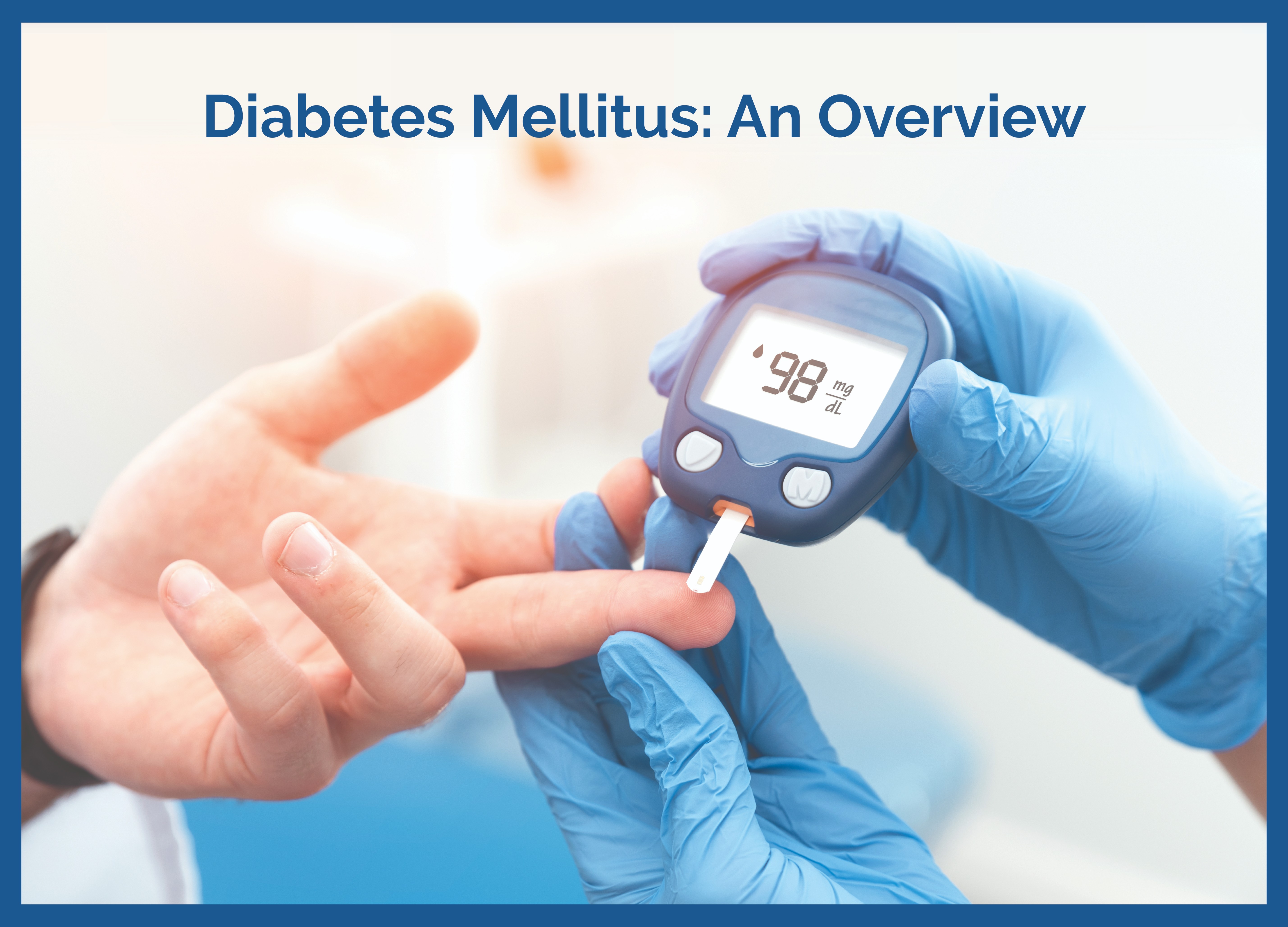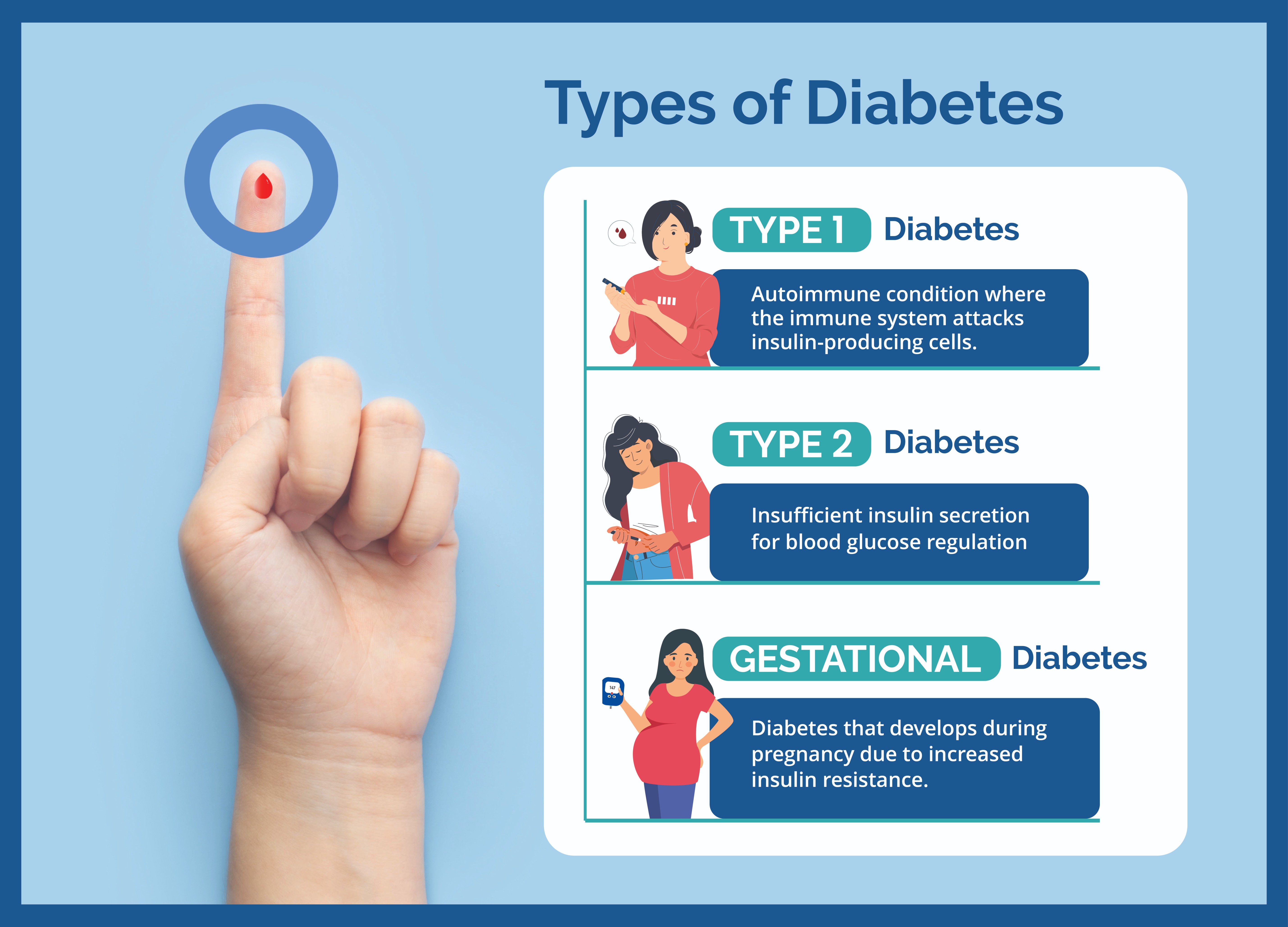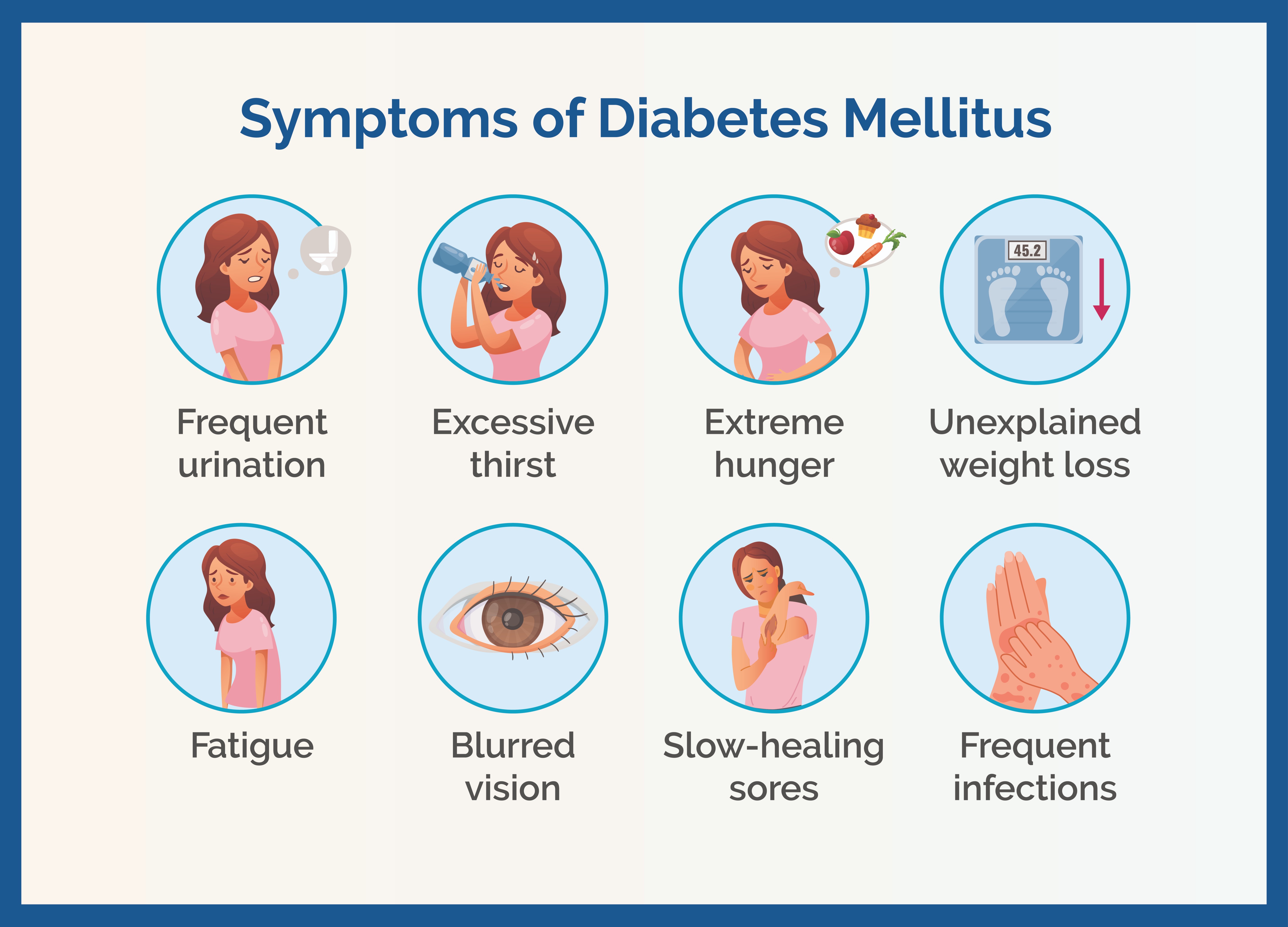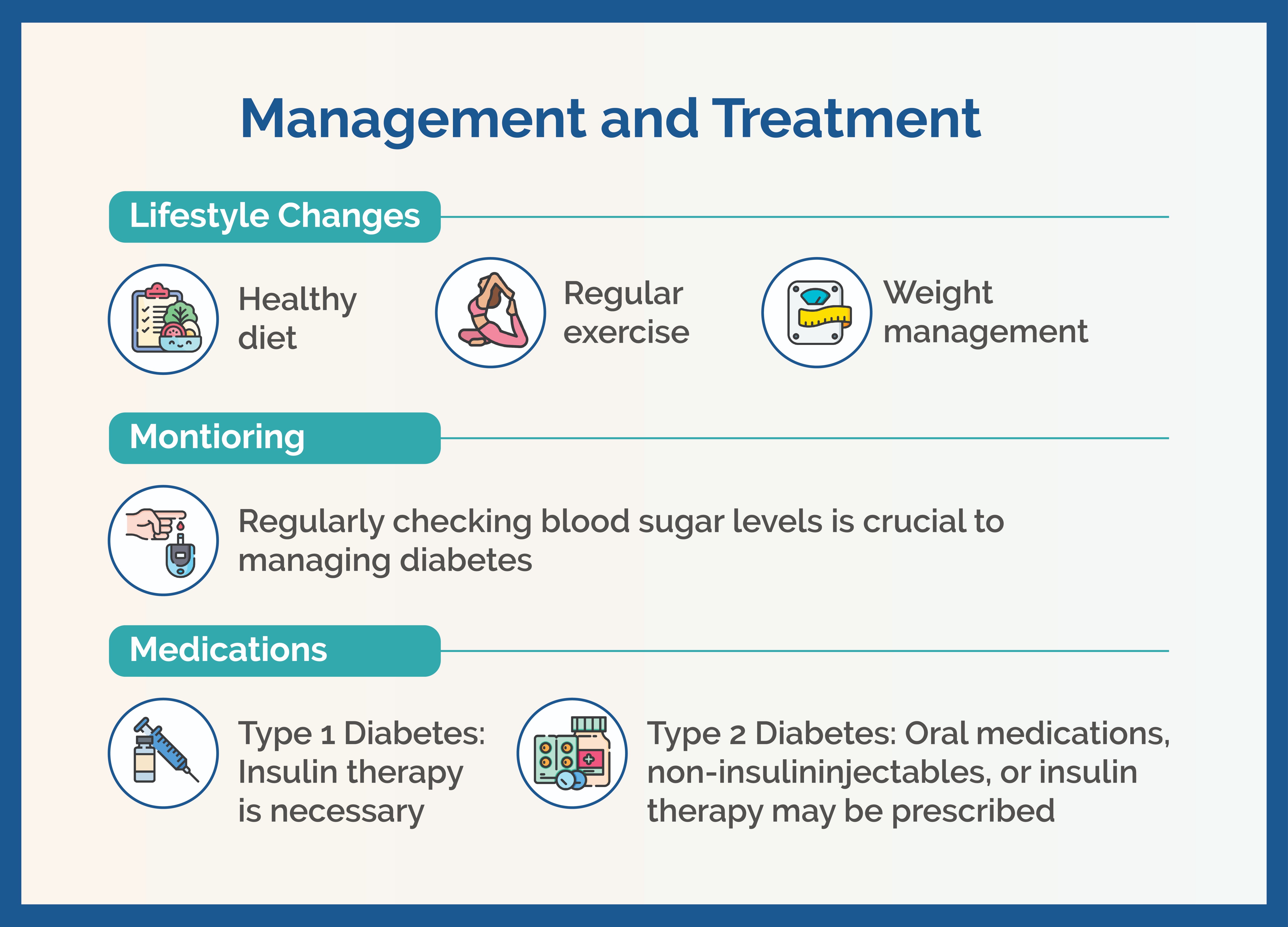Frequently Asked Questions (FAQs) about
Diabetes Mellitus:
What causes diabetes?
Type 1 diabetes is caused by an autoimmune reaction that destroys insulin-producing cells.
Type 2
diabetes is often caused by a combination of genetic factors and lifestyle choices, such as
poor diet and
lack of exercise.
Can diabetes be cured?
There is currently no cure for diabetes. However, it can be managed effectively with
medication,
lifestyle changes, and regular monitoring.
What are the complications of diabetes?
If not well managed, diabetes can lead to
serious complications such as cardiovascular disease, nerve
damage (neuropathy), kidney damage (nephropathy), eye damage (retinopathy), foot problems,
and
increased risk of infections.
Q5: Can I eat sweets if I have diabetes?
Yes, but in moderation. It's important to manage carbohydrate intake and monitor blood
sugar levels.
Consulting with a dietitian can help create a balanced meal plan that includes occasional
treats.
Is diabetes genetic?
Genetics play a role in both type 1 and type 2 diabetes, but lifestyle factors are
particularly significant
in type 2 diabetes.
How often should I check my blood sugar levels?
The frequency of monitoring depends on the
type of diabetes and the treatment plan. Type 1
diabetes typically requires more frequent monitoring, while type 2 diabetes might require
less frequent
checks, depending on how well it is managed.
What is the best diet for diabetes?
A balanced diet rich in fruits,
vegetables, whole grains, lean proteins, and healthy fats is
recommended. It's important to control portion sizes and avoid high-sugar and high-fat
foods.
Can stress affect my blood sugar levels?
Yes, stress can affect blood sugar levels.
It's important to manage stress through techniques such as
exercise, relaxation exercises, and seeking support from friends, family, or professionals.
What should I do if my blood sugar is too high or too low?
If blood sugar is too high
(hyperglycemia), you may need to adjust your medication, diet, or exercise.
If it's too low (hypoglycemia), consuming fast-acting carbohydrates like glucose
tablets or juice can help.
Always consult with your healthcare provider for personalized advice.



